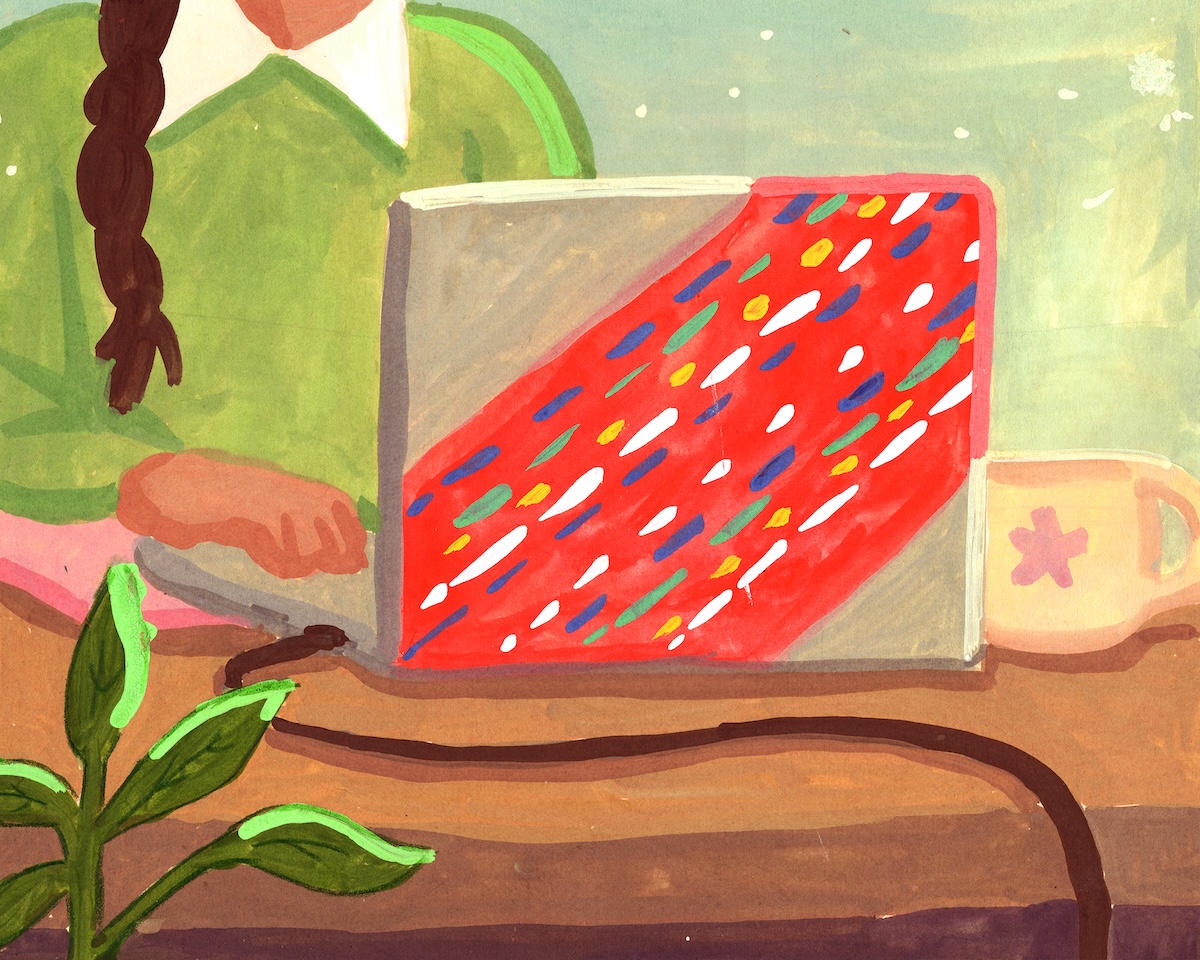Computing Connection: Landys Lepine’s STEM Student Life
She started off studying the mind, until math took her in a different direction. Landys Lepine was born and raised in Alberta, between Sherwood Park and Edmonton. She is Cree Métis and a member of the Métis Nation of Alberta. She’s a full time student at the University of Alberta in her third year specializing in computing science in software practice. She’s also VP external with the Indigenous in STEM Student Association and works with the First People's House, the Indigenous collective providing foundational Indigenous support at the university. She is a tutor for science courses for Indigenous students in the transition year program, helping them with calculus and programming courses.
She started out in psychology but didn’t feel connected to the courses. Lepine found she was more connected to mathematics and solving problems, to technology and digital skills, so she tried some programming courses. Never having taken these courses in school before, university was her first attempt. She connected with the course material and was fully enrolled into the program by her second year.
Lepine’s educational journey was unique, having homeschooled until grade six. She then attended a school that was project and community based that promoted emotional intelligence until grade nine. She credits the school for her empathy and emotional skills as well as her drive for business and entrepreneurship. From grade nine to twelve she attended a traditional high school then transitioned to University of Alberta.
Her advice for Indigenous students who are thinking of leaving their home communities to attend school would be to connect with Indigenous groups on campus, even if it’s intimidating at first. If there aren’t groups already, Lepine suggests advocating for them to be created and ensuring universities create the necessary resources and consider the needs of Indigenous students based on their ancestry. It’s not a challenge she faced personally, having come from the city, but her advice is based on how she felt when she first arrived at school and how she created community for herself.
One obstacle Lepine faced was that university attendance wasn’t very common in her family’s social circle, so she didn’t know much about it. She was fortunate to have friends who grew up in the traditional education system who knew more about the application process. Coming from a family of six, she couldn’t rely on her parents to fund her education, she looked for a career that would allow her to pay off student loans more than personal interest. She researched scholarships and the options she had to fund her education. Applying to and receiving scholarships helped her overcome financial stressors. Letting go of the fear and anxiety of the newness of university and just accepting that it’s somewhere she wanted to be and she would pursue it was also helpful.

If she could share a message with her younger self it would be to not think about the future as an anxiety-inducing stressor and not rush into it either. Lepine would encourage herself to take the time to slow down and think things through instead of avoiding and pushing away stressors, ignoring the inevitable. She would rather have planned out what she wanted and think about her options.
Thinking about her need for balance and to stay healthy, the tools and strategies Lepine uses are to balance academics, extracurriculars and jobs, trying to manage sources or income and to take time to get exercise on a regular basis, even if it’s just a walk. “Continuing to push yourself is not going to maximize your output and just let yourself have that time to recharge, as well as make time for hobbies,” Lepine advises. Music is her hobby of choice, making it or learning about it. Studying for finals, she would take breaks to play her guitar. Another strategy she uses is to not push or compare herself to others she thinks are pushing themselves and to take things at her own pace.
Her advice to someone struggling with their mental health or balance would be to recognize that their situation is unique and to not feel pressured to do what other people think they should do or feel how other people think they should feel. Lepine encourages them to figure out what they need in the moment, for the coming days, weeks and months, finding what works best for themselves and get in touch with themselves.
When it comes to inspiration, Lepine tries to stay unique to herself instead of focusing on other people or comparing to others. She tries to think retrospectively and look back on her own life and works to be a role model for those around her. She wants to be an inspiration and to analyze the growth in her life and know it’s going to continue.
Her studies started in the mind until math took her in a different direction, to computer sciences and software. Determined to overcome financial barriers, Landys Lepine applied for and won scholarships to fund her education. She came from a non-traditional educational background, but she saw that as an asset rather than a barrier. A full time student, a tutor, VP external with the Indigenous in STEM Student Association, she’s always on the go and working so hard, she’s a learner who is surely going places.
Thanks to Alison Tedford Seaweed for authoring this article.
Future Pathways Fireside Chats are a project of TakingITGlobal's Connected North Program.
Funding is generously provided by the RBC Foundation in support of RBC Future Launch, and the Government of Canada's Supports for Student Learning program.